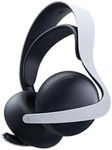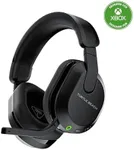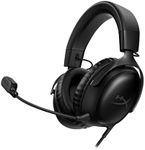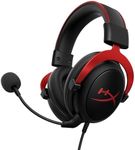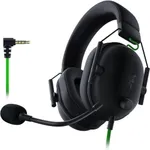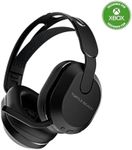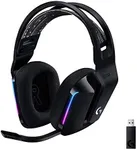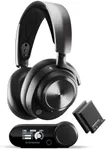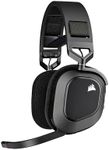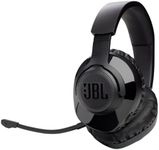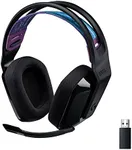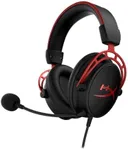Buying Guide for the Best Gaming Headsets
Choosing the right gaming headset can make a big difference in your gaming experience, whether you play casually or competitively. A good headset helps you hear in-game sounds clearly, communicate with teammates, and stay comfortable during long sessions. When shopping for a gaming headset, it's important to look beyond just the brand or appearance and focus on the features that match your gaming style and needs.Sound QualitySound quality refers to how well the headset reproduces audio, including game sounds, music, and voice chat. This is important because clear and accurate sound can help you react faster in games and enjoy a more immersive experience. Headsets can have stereo or surround sound. Stereo headsets are good for general use and casual gaming, while surround sound headsets (often labeled as 7.1 or virtual surround) can help you pinpoint the direction of sounds, which is useful in competitive games. If you play a lot of shooters or games where sound direction matters, surround sound might be better for you. For story-driven or casual games, stereo is usually enough.
Microphone QualityThe microphone lets you communicate with other players. A good mic should pick up your voice clearly and reduce background noise. Some headsets have detachable or flip-to-mute microphones, which can be convenient if you also want to use the headset for music or movies. If you play multiplayer games or stream, look for a headset with a noise-cancelling microphone. If you mostly play solo or don’t use voice chat much, mic quality may be less important.
Comfort and FitComfort is about how the headset feels on your head and ears, especially during long gaming sessions. Headsets come in different sizes and shapes, with various padding materials. Over-ear headsets with soft, breathable cushions are usually the most comfortable for extended use. Adjustable headbands and lightweight designs can also help. If you wear glasses or game for hours at a time, prioritize comfort features to avoid discomfort or headaches.
Wired vs. WirelessThis refers to how the headset connects to your device. Wired headsets plug in directly and usually have no delay or need for charging, making them reliable for long sessions. Wireless headsets offer more freedom of movement but need to be charged and may have slight audio delay, though this is less of an issue with modern models. If you move around a lot or dislike cables, wireless might be better. If you want simplicity and never want to worry about battery life, go for wired.
Platform CompatibilityNot all headsets work with every gaming system. Some are designed for PC, while others work with consoles like PlayStation, Xbox, or Switch. Universal headsets can connect to multiple devices, often through a standard 3.5mm jack or USB. Make sure the headset you choose is compatible with the devices you plan to use it with. If you game on several platforms, look for a headset that supports all of them.
Durability and Build QualityDurability is about how well the headset can withstand regular use, drops, or being packed in a bag. Headsets made with metal frames or reinforced plastic tend to last longer. If you travel with your headset or use it daily, look for sturdy construction and quality materials. If you mostly use it at home and handle it gently, this may be less of a concern.
Extra FeaturesSome headsets offer additional features like customizable RGB lighting, on-ear controls, detachable cables, or software for sound customization. These can enhance your experience but are not essential for everyone. If you like to personalize your gear or want quick access to volume and mute controls, consider these extras. If you prefer simplicity, you can skip them.

